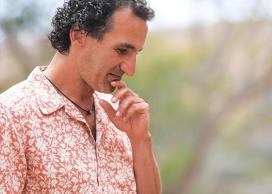Research in focus: Patricia Janssen
Learn more about the work of our researchers at UBC

August 30, 2021
Name:
Patricia Janssen
Title:
Professor
Department/Unit:
Medicine/School of Population and Public Health
Location:
Vancouver
What year did you start working at UBC?
2001
Provide an overview of your research in 75 words or less:
I am a perinatal epidemiologist and Senior Scholar at the BC Children’s Hospital Research Institute. Trained in nursing and midwifery, I lead Optimal Birth BC, a consortium of clinician-scientists and public health practitioners who undertake institutional quality improvement initiatives and develop information resources for childbearing families in BC. I am the founder of SmartMom and SmartParent, prenatal and parenting education programs delivered by text messaging to women and families in British Columbia.
What first motivated you (or motivates you) to conduct your research?
As an obstetrical nurse, I saw practice that was based on myth, ritual, and tradition, rather than on science. While modern health disciplines are supported by sophisticated research methodologies, many traditional maternity care practices that have been in place for decades have not been subjected to rigorous scientific review, and some have resulted in harm to mothers and babies. I felt compelled to ask and answer important questions about the evidence related to maternity care.
What do you hope will change as a result of this research?
I hope to bring new disciplines to the study of normal or physiologic birth, in order to understand evidence-based approaches to preparing women to give birth with a minimum of complications and interventions. Kinesiologists, nutrition specialists, mental health professionals, social workers, and experts in environmental and occupational health must come together to define optimal preconceptual health, and to develop strategies to help individuals achieve that health prior to pregnancy.
What have you learned during your research that has surprised you the most?
Factors that precipitate interventions such as cesarean section, go beyond the practice of individual nurses and physicians. For example, obesity and maternal age over 35 are some of the driving factors for cesarean birth. These lifestyle issues must be addressed by public health professionals. Similarly, hospitals in rural locations schedule cesarean birth rather than offering vaginal birth when there are insufficient resources to undertake unplanned cesarean births outside of regular working hours.
Describe any interesting research milestones you are approaching
We have developed Canada’s first prenatal (smartmomcanada.ca) and parenting (smartparentcanada.ca) education programs delivered by text messaging. We have had 8,000 participants in SmartMom and have learned that the program increases prenatal health literacy and improves mental health indicators. We are currently exploring the impact of the program on serious complications of pregnancy such as preterm labour and stillbirth. SmartMom has been implemented in all health authorities in BC and SmartParent was launched in summer 2021.
- Our people
- Research
- Research in focus






